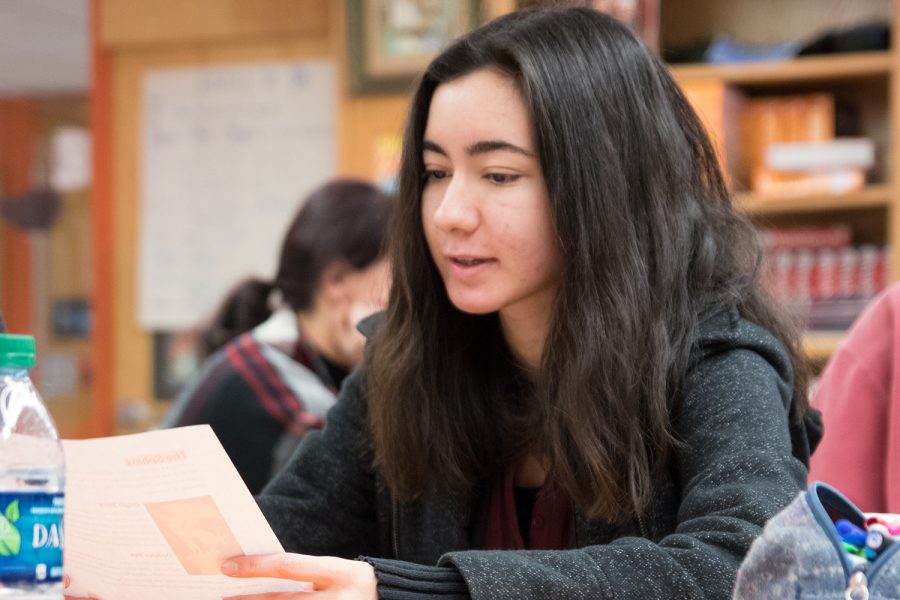Reviving a dead language
Latin program expands
Photo by Kaitlyn Gordon
Senior Hannah Klein reviews Latin transcribing notes. The Latin program is expanding and adding to its curriculum.
February 6, 2019
Vox Populi. The voice of the people. Centuries ago, Latin was a language commonly spoken throughout the ancient world. As time passed and empires changed shape and form, Latin changed into what is known today as the Romance languages. These languages include modern-day Spanish, Italian, French, Portuguese and Romanian. While these languages began to flourish in Europe, Latin slowly faded until it was officially declared a dead language — a language no longer spoken in everyday use.
The Latin class was established in the 2017-2018 school year to give students the opportunity to explore languages outside of the other spoken languages that were already offered.
“I wanted to teach Latin because I studied Latin in college,” instructor Kara Wicks said. “It was something I always wanted to go back to.”
Unlike Spanish and French, the Latin class focuses primarily on literature, sentence structure and history, instead of dialect. Students in the class are taught to translate primary Latin sources, present information on various topics in Roman history, and write original sentences and passages in Latin.
“Translating Latin has forced me to focus more on English grammar,” senior Liz Formby said. “This improves my understanding of the English language. Translating helps you put everything together; you have to use vocabulary and grammar.”
As the students become more fluent in translating, the class has put an emphasis on Roman history and culture.
“I asked for feedback at the end of the year, and my students asked to study more culture and history,” Wicks said. “Since I don’t have time to prepare that many presentations, I thought I would turn it over to the students. They’re excellent researchers.”
Once every six weeks, the students are tasked with creating a presentation over their chosen history topic. These presentations are called “History Happys.” The topic must be able to be connected to the Latin language in some way. Previous presentation topics have included the Colosseum, Augustus, the assassination of Caesar and the Catiline conspiracy.
“History Happy is a unique opportunity to explore different people in Latin History,” sophomore Kate Woodard said. “It’s a good way for the class to practice presentations and connect things that interest them to the class.”
In the spring of 2018, Latin students participated in the National Latin Exam. Overall, two people were awarded with Summa Cum Laude, one person was awarded Maxima Cum Laude, and six people were awarded Magna Cum Laude. The class plans on taking the International Latin Exam for the Latin II course this spring.
“I think it’s good to be a part of something bigger,” Wicks said. “If you’re in a small Latin class, you feel like nobody else your age cares about this. It’s cool to take a test where you see that a lot of other kids are studying Latin.”
The current sophomores and juniors of the class are waiting to see whether or not Latin III Advanced Placement will be on the 2019-2020 choice sheets so that they can further expand their knowledge of the Latin language.
“I’m really excited for Latin III AP because that is where all the hard work from Latin I and Latin II finally pay off by taking the AP test,” Wicks said.
















